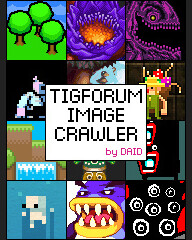GDC 2010: Please Finish Your Game
By: Derek Yu
On: March 24th, 2010
The inimitable Chris Hecker ranted at GDC this year (Chris worked on Spore but is now indie). His rant, titled “Please Finish Your Game”, addresses the issue of development time in the mainstream and indie communities. Specifically, he asks developers to pursue good ideas to their “logical and aesthetic extent”.
Chris elaborates on his rant here, and has added an email exchange he had with cactus about it afterwards (cactus is featured prominently in the rant).
-
chrknudsen
-
The_dude
-
Arne
-
paul eres
-
http://flashpunk.net ChevyRay
-
increpare
-
http://mikengreg.com Greg
-
Anthony Flack
-
http://mikengreg.com Greg
-
increpare
-
paul eres
-
Anonymous
-
Anthony Flack
-
Zaphos
-
increpare
-
Zaphos
-
paul eres
-
Zaphos
-
Bennett
-
http://chrishecker.com Chris Hecker
-
Bennett
-
Zaphos
-
Anthony Flack
-
http://chrishecker.com Chris Hecker
-
Bennett
-
Bennett
-
Anthony Flack
-
Bennett
-
http://www.klikscene.com/ Radix
-
http://chrishecker.com Chris Hecker
-
http://chrishecker.com Chris Hecker
-
Andy
-
Anthony Flack
-
http://mikengreg.com Greg
-
Tom Hiddleston

